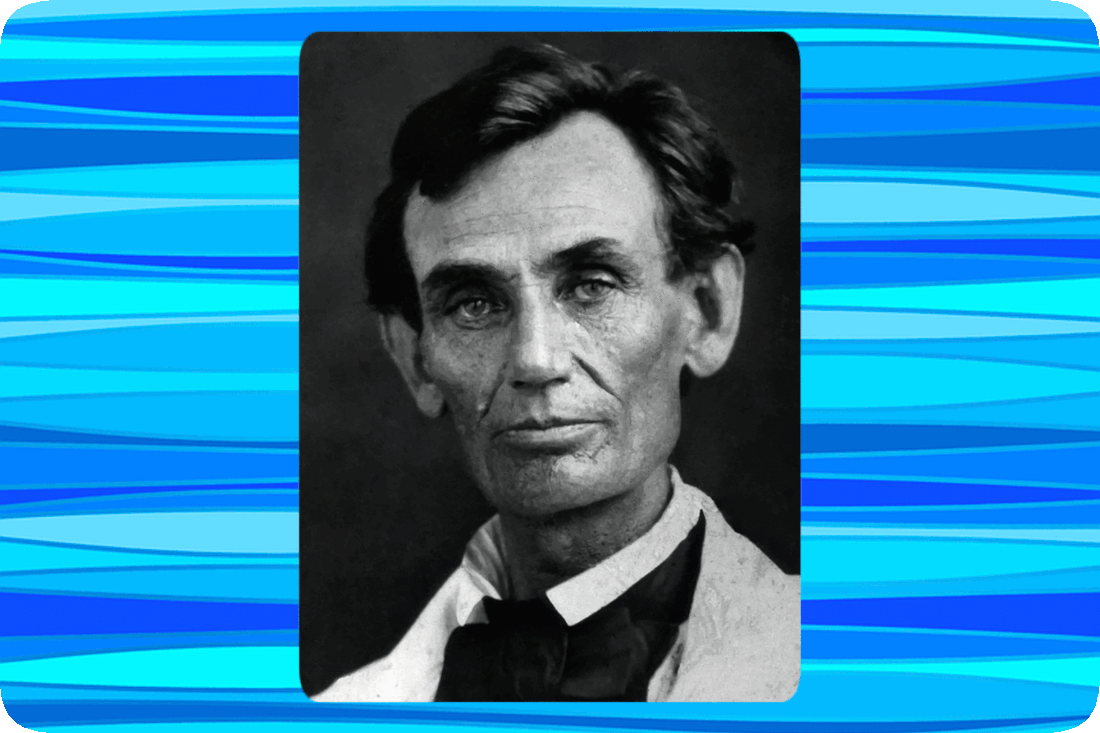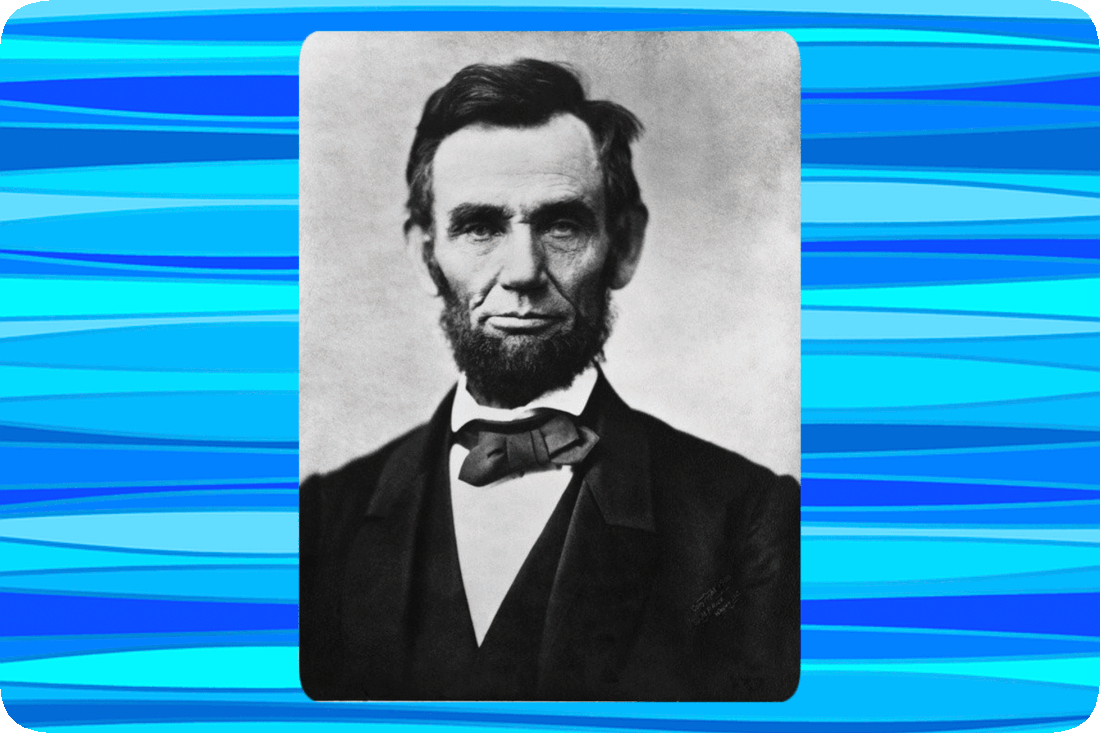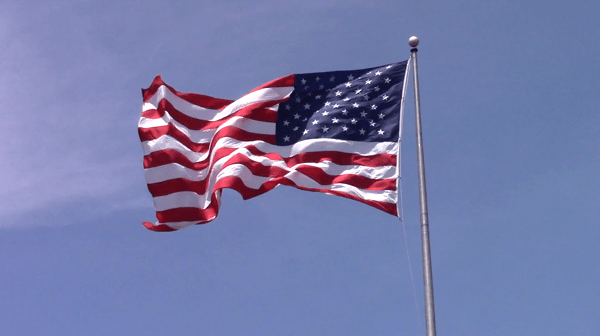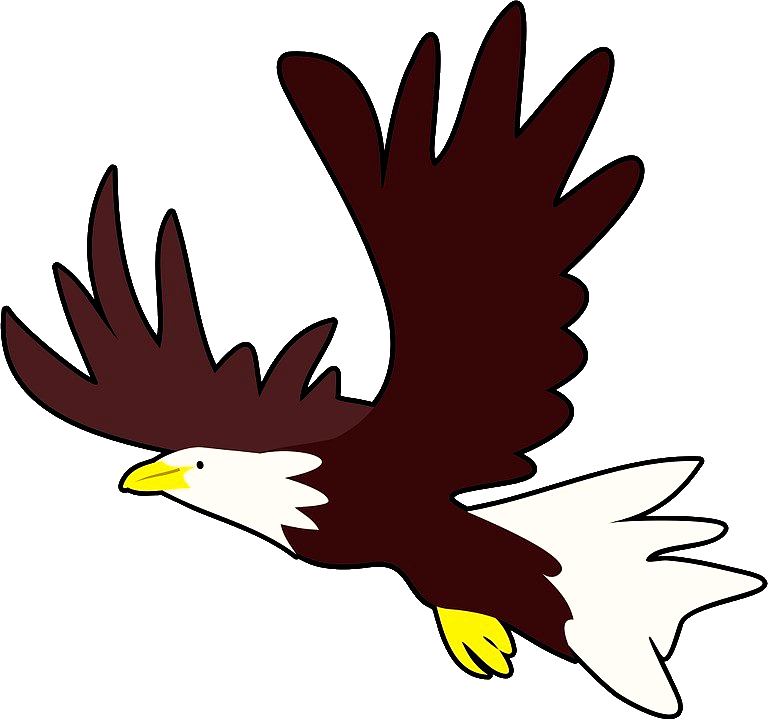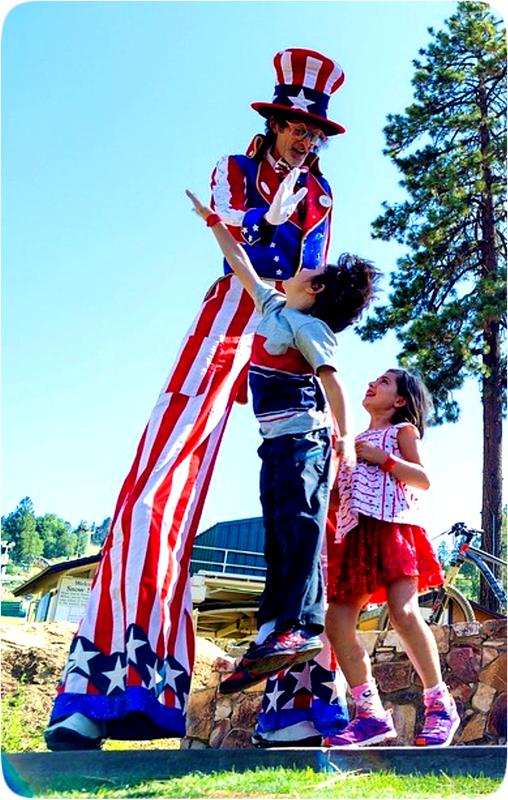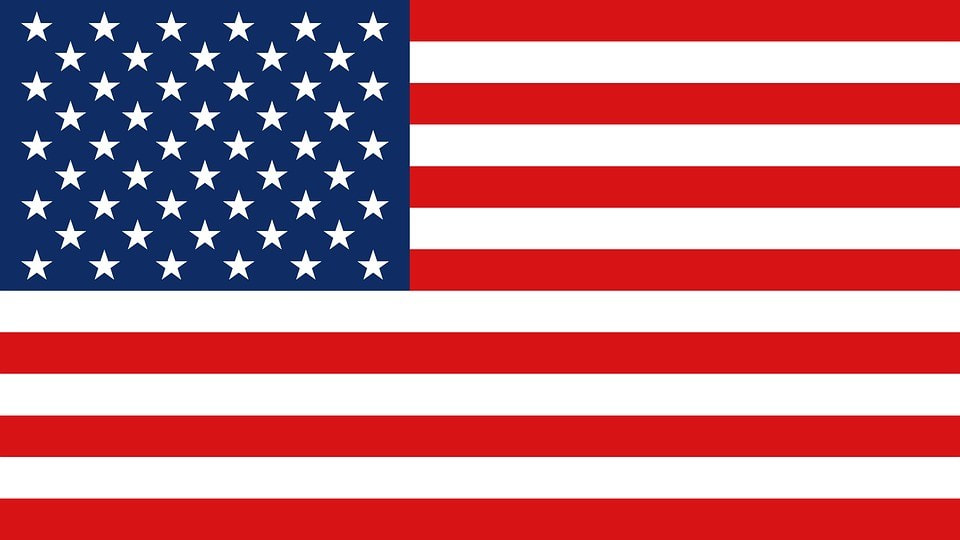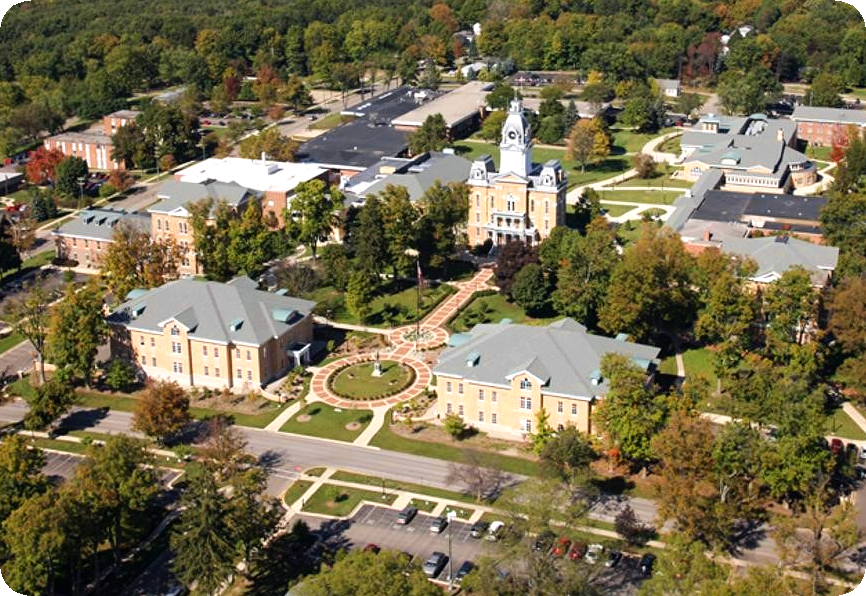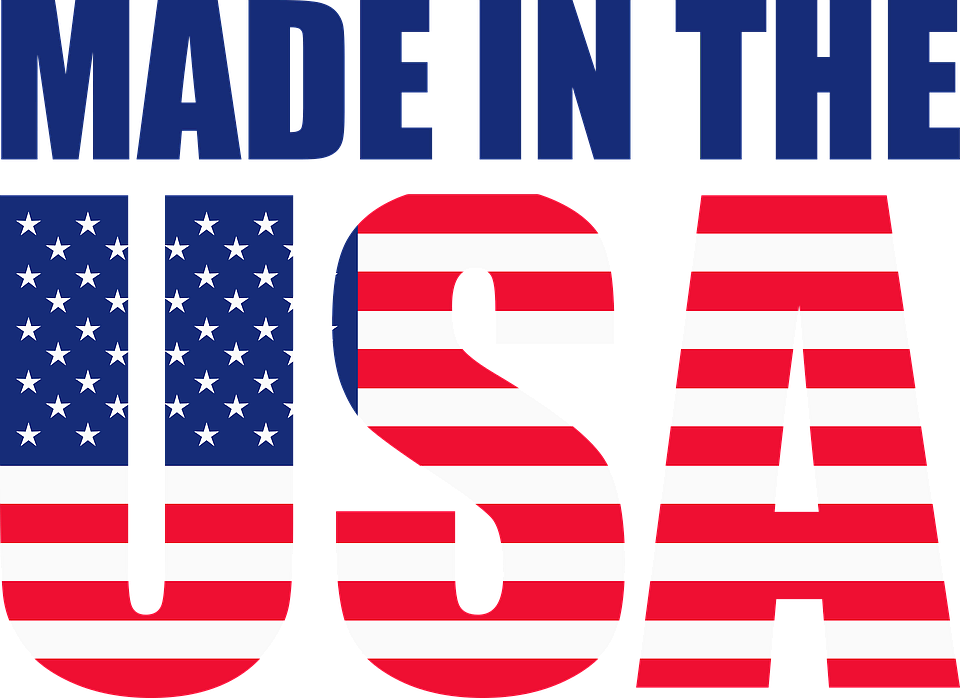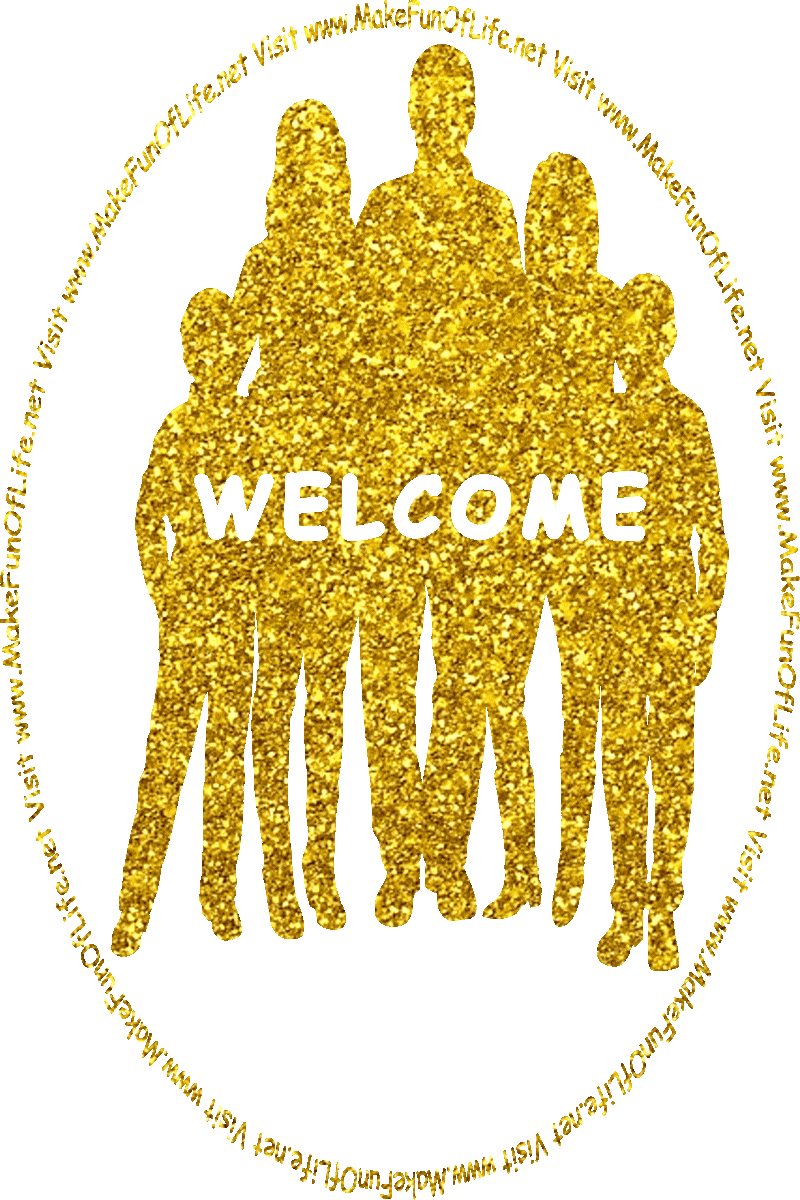The many stories of Mr. Lincoln’s self-reliance and tenacity have been summed up in the somewhat exaggerated quip, “Abraham Lincoln was born in a log cabin that he built with his own hands.”
The log cabin in which Abraham Lincoln was born measured about 4.9 meters by 5.5 meters (16 feet by 18 feet). The logs were oak and chestnut and numbered 143. They were chinked with clay. Rough wooden shingles covered the roof. There was a stone fireplace, one door which swung on leather hinges, and one window covered with thin animal skin so that those inside could get a rough estimate on whether it was daytime or nighttime outside the cabin. There was a small stick-and-clay chimney and the floor was dirt.
“He’ll never come to much, fur I’ll tell you he wuz the puniest, cryin’est little youngster I ever saw.” -Dennis Hanks (first cousin of Nancy Hanks Lincoln), on the day Abraham Lincoln was born
“It is difficult to make a man miserable while he feels he is worthy of himself and claims kindred to the great God who made him.” -Abraham Lincoln
As a boy, Abe was rented out to local farmers by his father to do hard labor. His father used the proceeds to buy alcohol, and was in a near-constant state of inebriation. His father was also a believer in applying a stern hand to his children, to an extent that in the present day would be called child abuse. Later in life, upon being informed of his father’s failing health preceding his demise, Lincoln declined to visit him and asked his stepbrother to, “Say to him that if we could meet now, it is doubtful whether it would not be more painful than pleasant.” Abe did not attend his father’s funeral.
“Let the past as nothing be.” -Abraham Lincoln
Abraham Lincoln may have had a medical condition called Marfans syndrome. Some of its symptoms include extremely long bones, a curved spine, an arm span that is longer than a person’s height, eye problems, heart problems, and very little fat. Marfans is a rare and inherited condition.
“I fear explanations explanatory of things explained.” -Abraham Lincoln
People seeing Abe when he first stepped out of the backwoods and into civilization as a young man described him as showing a kind of poverty not seen in even the worst of circumstances. His was extremely thin, and his shoes and clothes were worn out and patched and held together in the roughest way imaginable. But he didn’t let that stop him from attempting to make something of himself. He worked hard and played hard. In his free hours, he would take on any man who was foolish enough to challenge him in a wrestling contest, and he had a record of coming out the winner most times.
“No men living are more worthy to be trusted than those who toil up from poverty.” -Abraham Lincoln
“When you have got an elephant by the hind leg, and he is trying to run away, it’s best to let him run.” -Abraham Lincoln: as attributed in Charles Anderson Dana: “Recollections of the Civil War” (1897)
When we think of Abraham Lincoln, we are called to mind of a tall, gaunt, bearded figure dressed in a stovepipe hat and coattails. Abe was 6 foot, 3-and-3/4 inches tall with his shoes removed, and his shoe size was somewhere between a 12 and a 14. Lincoln was the first American President to wear a beard, but he didn’t always have that beard (more about that later). Abraham Lincoln’s size 7-and-1/8th stovepipe hat was called his ‘desk and memorandum book’ and also his ‘filing cabinet’ because he kept his mail, bankbook, and important papers in it.
“If this is coffee, please bring me some tea; but if this is tea, please bring me some coffee.” -Abraham Lincoln
Abe was a shopkeeper and a lawyer at different times in his life, so he had a trade and a profession long before pursuing the highest office in the land. He earned the handle ‘Honest Abe’ from walking long distances to return just a few pennies to customers he had mistakenly overcharged for their store purchases.
“I like to see a man proud of the place in which he lives. I like to see a man live so that his place will be proud of him.” -Abraham Lincoln
“The thing about quotes from the internet is that it is hard to verify their authenticity.” -Abraham Lincoln (Yes, we have played a little trick on you - he never actually said that one.)
“The way for a young man to rise is to improve himself every way he can, never suspecting that anybody wishes to hinder him.” -Abraham Lincoln: letter (10 July 1848) to William H. Herndon
“I will study and prepare myself . . . and someday my chance will come.” -Abraham Lincoln
Abraham Lincoln (1809 - 1865), the man who would eventually become a President of the United States of America, never passed a bar exam. He was a self-taught lawyer, spending many hours reading books on the law in a time and place in which law schools were not as common as today. He received his license to practice law simply by appearing before a court and having someone testify as to the soundness of his character.
“If there is anything that a man can do well, I say let him do it. Give him a chance.” -Abraham Lincoln
“Leave nothing for tomorrow which can be done today.” -Abraham Lincoln: memorandum for law lecture (1850)
Lawyer Lincoln answers an inquiry concerning the financial standing of a fellow townsman: “First of all, he has a wife and baby; together they ought to be worth $500,000 to any man. Secondly, he has an office in which there is a table worth $1.50, and three chairs, worth, say $1.00. Last of all, there is in one corner a large rat-hole, which will bear looking into.” -Respectfully, A. Lincoln
“Sir, my concern is not whether God is on our side; my great concern is to be on God’s side, for God is always right.” -Abraham Lincoln
Abraham Lincoln was brought up Baptist and occasionally attended Presbyterian churches in Springfield, Illinois and in Washington, District of Columbia. He was married by an Episcopal minister. Though he never joined a church during his life, he did sporadically attend services with his wife Mary Todd Lincoln, who was a regular churchgoer. Still, he had arduously read and studied “The Bible” and could quote scripture, having a particular affinity for ‘The Book of Psalms.’
“I care not much for a man’s religion whose dog and cat are not the better for it.” -Abraham Lincoln
Abe was no stranger to tools and manual labor. He once worked as a rail-splitter, a job in which he hand-split long sections of logs lengthwise into rails used in the building of fences. He lived way back when the world was brand-new, that is to say, when civilization was still in the process of being carved out of the rough wilderness of North America. (Rest assured, the world will be brand-new again someday, as nature has a way of taking back from us land we ‘borrow’ in a constant renewal of itself; everything ultimately belongs to a higher order than us, and we - every one of us individually and we collectively as a species - could be said to be ‘just passing through.’ Well, no matter, let us work in the shade and frolic in the sunlight while we are here, for that is what we were designed to do. But we digress.)
“If I had eight hours to cut down a big tree, I’d spend six hours sharpening the axe.” -Abraham Lincoln
Abraham Lincoln, his hand and pen,
He will be good, but God knows when.
-Abraham Lincoln, in a little ditty he wrote about himself
“With the fearful strain that is on me night and day, if I did not laugh I should die.” -Abraham Lincoln
“Folks are generally as happy as they make up their minds to be.” -Abraham Lincoln (1809 - 1865)
In 1832, during the Black Hawk War, a conflict between the United States federal government and the Sac and Fox Indians, Abraham Lincoln, then a young captain of the Bucktail Rangers, was in command of his platoon as they marched across the county. Lincoln was rather ignorant of matters of drill, tactics, and formations; and when his soldiers came to a narrow gate in a fence, he had no idea how to deal with the situation in a proper military way. So he commanded, “Halt! Company dismissed for two minutes. At the end of that time, reassemble on the other side of the fence.”
On Crossing a Stream before You Reach It
“Many years ago, when I was a young lawyer, and Illinois was little settled, except on her southern border, I, and other lawyers, used to ride the circuit; journeying with the judge from county-seat to county-seat in quest of business. Once, after a long spell of pouring rain, which had flooded the whole country, transforming small creeks into rivers, we were often stopped by these swollen streams, which we with difficulty crossed. Still ahead of us was the Fox River, larger than all the rest; and we could not help saying to each other, ‘If these streams give us so much trouble, how shall we get over Fox River?’ Darkness fell before we had reached that stream; and we all stopped at a log tavern, had our horses put out, and resolved to pass the night. Here we were right glad to fall in with the Methodist Presiding Elder of the circuit [Peter Cartwright, whom Lincoln had once defeated for Congress], who rode it in all weather, knew all its ways, and could tell us about Fox River. So we all gathered around him, and asked him if he knew about the crossing of Fox River. ‘Oh, yes,’ he replied, ‘I know all about Fox River. I have crossed it often and understand it well; but I have one fixed rule with regard to Fox River: I never cross it till I reach it.’”
by Abraham Lincoln
In 1839, Mr. Lincoln met future ‘First Lady’ Mary Ann Todd Lincoln, who had moved to Springfield from Lexington, Kentucky. Most likely, the couple met at a fancy dress ball. Mary was then living at the home of her older sister, Elizabeth Edwards. Mary was educated and from a wealthy family. When she caught sight of Abraham, her first words were, “Who is that man?” Lincoln wore a custom-made suit by Brooks Brothers, a maker of finer men’s clothing that is still a going concern today. So, take a hint, guys, clothes do make the man, and may get you the kind of attention you are seeking.
“Tact is the ability to describe others as they see themselves.” -Abraham Lincoln (1809 -1865)
“Whatever you are, be a good one.” -Abraham Lincoln
So now you know part of the answer to Mary Ann Todd’s question in the paragraph above. If you’d like to know more, there are more 15,000 different books on the life of Abraham Lincoln. Read two a day, and in 20 years, you’ll know enough to write your own book about Honest Abe. Right now would be a good time to get started on that reading.
“For those who like this kind of a book, this is the kind of a book they will like.” -Abraham Lincoln, in a remark made upon reviewing a book
“Determine that the thing can and shall be done, and then we shall find the way.” -Abraham Lincoln: speech (20 June 1848) in the United States House of Representatives
Abraham Lincoln is the only American President ever granted a patent. He invented a hydraulic device for lifting ships over shoals (shallows). (Thomas Jefferson invented the coat hanger, but did not patent it.) Mr. Lincoln received patent number 6469 in the year 1849 for his invention.
“Always bear in mind that your own resolution to succeed, is more important than any other one thing.” -Abraham Lincoln: letter (5 November 1855) to Isham Reavis
In 1858, Abraham Lincoln was debating Stephen A. Douglas, his opponent, in a campaign for the United States Senate. Not only was Mr. Lincoln not as great an orator (speechmaker) as Mr. Douglas, he was also not what some would call a handsome man. At one point, Mr. Douglas accused Mr. Lincoln of being two-faced, and Mr. Lincoln replied, “I leave it to my audience. If I had two faces, would I be wearing this one?”
“I don’t like that man. I must get to know him better.” -Abraham Lincoln
“Do not worry; eat three square meals a day; say your prayers; be courteous to your creditors; keep your digestion good; exercise; go slow and easy. Maybe there are other things your special case requires to make you happy, but my friend, these I reckon will give you a good lift.” -Abraham Lincoln
“I hold that if the Almighty had ever made a set of men that should do all the eating and none of the work, he would have made them with mouths only and no hands, and if he had ever made another class that he intended should do all the work and none of the eating, he would have made them without mouths and with all hands.” -Abraham Lincoln: notes for speech (17 September 1859) in Cincinnati, Ohio
“It is said an Eastern monarch once charged his wise men to invent him a sentence to be ever in view, and which should be true and appropriate in all times and situations. They presented him the words: ‘And this, too, shall pass away.’ How much it expresses! How chastening in the hour of pride! How consoling in the depths of affliction!” -Abraham Lincoln: in an address (30 September 1859) to the Wisconsin State Agricultural Society in Milwaukee, Wisconsin
The log cabin in which Abraham Lincoln was born measured about 4.9 meters by 5.5 meters (16 feet by 18 feet). The logs were oak and chestnut and numbered 143. They were chinked with clay. Rough wooden shingles covered the roof. There was a stone fireplace, one door which swung on leather hinges, and one window covered with thin animal skin so that those inside could get a rough estimate on whether it was daytime or nighttime outside the cabin. There was a small stick-and-clay chimney and the floor was dirt.
“He’ll never come to much, fur I’ll tell you he wuz the puniest, cryin’est little youngster I ever saw.” -Dennis Hanks (first cousin of Nancy Hanks Lincoln), on the day Abraham Lincoln was born
“It is difficult to make a man miserable while he feels he is worthy of himself and claims kindred to the great God who made him.” -Abraham Lincoln
As a boy, Abe was rented out to local farmers by his father to do hard labor. His father used the proceeds to buy alcohol, and was in a near-constant state of inebriation. His father was also a believer in applying a stern hand to his children, to an extent that in the present day would be called child abuse. Later in life, upon being informed of his father’s failing health preceding his demise, Lincoln declined to visit him and asked his stepbrother to, “Say to him that if we could meet now, it is doubtful whether it would not be more painful than pleasant.” Abe did not attend his father’s funeral.
“Let the past as nothing be.” -Abraham Lincoln
Abraham Lincoln may have had a medical condition called Marfans syndrome. Some of its symptoms include extremely long bones, a curved spine, an arm span that is longer than a person’s height, eye problems, heart problems, and very little fat. Marfans is a rare and inherited condition.
“I fear explanations explanatory of things explained.” -Abraham Lincoln
People seeing Abe when he first stepped out of the backwoods and into civilization as a young man described him as showing a kind of poverty not seen in even the worst of circumstances. His was extremely thin, and his shoes and clothes were worn out and patched and held together in the roughest way imaginable. But he didn’t let that stop him from attempting to make something of himself. He worked hard and played hard. In his free hours, he would take on any man who was foolish enough to challenge him in a wrestling contest, and he had a record of coming out the winner most times.
“No men living are more worthy to be trusted than those who toil up from poverty.” -Abraham Lincoln
“When you have got an elephant by the hind leg, and he is trying to run away, it’s best to let him run.” -Abraham Lincoln: as attributed in Charles Anderson Dana: “Recollections of the Civil War” (1897)
When we think of Abraham Lincoln, we are called to mind of a tall, gaunt, bearded figure dressed in a stovepipe hat and coattails. Abe was 6 foot, 3-and-3/4 inches tall with his shoes removed, and his shoe size was somewhere between a 12 and a 14. Lincoln was the first American President to wear a beard, but he didn’t always have that beard (more about that later). Abraham Lincoln’s size 7-and-1/8th stovepipe hat was called his ‘desk and memorandum book’ and also his ‘filing cabinet’ because he kept his mail, bankbook, and important papers in it.
“If this is coffee, please bring me some tea; but if this is tea, please bring me some coffee.” -Abraham Lincoln
Abe was a shopkeeper and a lawyer at different times in his life, so he had a trade and a profession long before pursuing the highest office in the land. He earned the handle ‘Honest Abe’ from walking long distances to return just a few pennies to customers he had mistakenly overcharged for their store purchases.
“I like to see a man proud of the place in which he lives. I like to see a man live so that his place will be proud of him.” -Abraham Lincoln
“The thing about quotes from the internet is that it is hard to verify their authenticity.” -Abraham Lincoln (Yes, we have played a little trick on you - he never actually said that one.)
“The way for a young man to rise is to improve himself every way he can, never suspecting that anybody wishes to hinder him.” -Abraham Lincoln: letter (10 July 1848) to William H. Herndon
“I will study and prepare myself . . . and someday my chance will come.” -Abraham Lincoln
Abraham Lincoln (1809 - 1865), the man who would eventually become a President of the United States of America, never passed a bar exam. He was a self-taught lawyer, spending many hours reading books on the law in a time and place in which law schools were not as common as today. He received his license to practice law simply by appearing before a court and having someone testify as to the soundness of his character.
“If there is anything that a man can do well, I say let him do it. Give him a chance.” -Abraham Lincoln
“Leave nothing for tomorrow which can be done today.” -Abraham Lincoln: memorandum for law lecture (1850)
Lawyer Lincoln answers an inquiry concerning the financial standing of a fellow townsman: “First of all, he has a wife and baby; together they ought to be worth $500,000 to any man. Secondly, he has an office in which there is a table worth $1.50, and three chairs, worth, say $1.00. Last of all, there is in one corner a large rat-hole, which will bear looking into.” -Respectfully, A. Lincoln
“Sir, my concern is not whether God is on our side; my great concern is to be on God’s side, for God is always right.” -Abraham Lincoln
Abraham Lincoln was brought up Baptist and occasionally attended Presbyterian churches in Springfield, Illinois and in Washington, District of Columbia. He was married by an Episcopal minister. Though he never joined a church during his life, he did sporadically attend services with his wife Mary Todd Lincoln, who was a regular churchgoer. Still, he had arduously read and studied “The Bible” and could quote scripture, having a particular affinity for ‘The Book of Psalms.’
“I care not much for a man’s religion whose dog and cat are not the better for it.” -Abraham Lincoln
Abe was no stranger to tools and manual labor. He once worked as a rail-splitter, a job in which he hand-split long sections of logs lengthwise into rails used in the building of fences. He lived way back when the world was brand-new, that is to say, when civilization was still in the process of being carved out of the rough wilderness of North America. (Rest assured, the world will be brand-new again someday, as nature has a way of taking back from us land we ‘borrow’ in a constant renewal of itself; everything ultimately belongs to a higher order than us, and we - every one of us individually and we collectively as a species - could be said to be ‘just passing through.’ Well, no matter, let us work in the shade and frolic in the sunlight while we are here, for that is what we were designed to do. But we digress.)
“If I had eight hours to cut down a big tree, I’d spend six hours sharpening the axe.” -Abraham Lincoln
Abraham Lincoln, his hand and pen,
He will be good, but God knows when.
-Abraham Lincoln, in a little ditty he wrote about himself
“With the fearful strain that is on me night and day, if I did not laugh I should die.” -Abraham Lincoln
“Folks are generally as happy as they make up their minds to be.” -Abraham Lincoln (1809 - 1865)
In 1832, during the Black Hawk War, a conflict between the United States federal government and the Sac and Fox Indians, Abraham Lincoln, then a young captain of the Bucktail Rangers, was in command of his platoon as they marched across the county. Lincoln was rather ignorant of matters of drill, tactics, and formations; and when his soldiers came to a narrow gate in a fence, he had no idea how to deal with the situation in a proper military way. So he commanded, “Halt! Company dismissed for two minutes. At the end of that time, reassemble on the other side of the fence.”
On Crossing a Stream before You Reach It
“Many years ago, when I was a young lawyer, and Illinois was little settled, except on her southern border, I, and other lawyers, used to ride the circuit; journeying with the judge from county-seat to county-seat in quest of business. Once, after a long spell of pouring rain, which had flooded the whole country, transforming small creeks into rivers, we were often stopped by these swollen streams, which we with difficulty crossed. Still ahead of us was the Fox River, larger than all the rest; and we could not help saying to each other, ‘If these streams give us so much trouble, how shall we get over Fox River?’ Darkness fell before we had reached that stream; and we all stopped at a log tavern, had our horses put out, and resolved to pass the night. Here we were right glad to fall in with the Methodist Presiding Elder of the circuit [Peter Cartwright, whom Lincoln had once defeated for Congress], who rode it in all weather, knew all its ways, and could tell us about Fox River. So we all gathered around him, and asked him if he knew about the crossing of Fox River. ‘Oh, yes,’ he replied, ‘I know all about Fox River. I have crossed it often and understand it well; but I have one fixed rule with regard to Fox River: I never cross it till I reach it.’”
by Abraham Lincoln
In 1839, Mr. Lincoln met future ‘First Lady’ Mary Ann Todd Lincoln, who had moved to Springfield from Lexington, Kentucky. Most likely, the couple met at a fancy dress ball. Mary was then living at the home of her older sister, Elizabeth Edwards. Mary was educated and from a wealthy family. When she caught sight of Abraham, her first words were, “Who is that man?” Lincoln wore a custom-made suit by Brooks Brothers, a maker of finer men’s clothing that is still a going concern today. So, take a hint, guys, clothes do make the man, and may get you the kind of attention you are seeking.
“Tact is the ability to describe others as they see themselves.” -Abraham Lincoln (1809 -1865)
“Whatever you are, be a good one.” -Abraham Lincoln
So now you know part of the answer to Mary Ann Todd’s question in the paragraph above. If you’d like to know more, there are more 15,000 different books on the life of Abraham Lincoln. Read two a day, and in 20 years, you’ll know enough to write your own book about Honest Abe. Right now would be a good time to get started on that reading.
“For those who like this kind of a book, this is the kind of a book they will like.” -Abraham Lincoln, in a remark made upon reviewing a book
“Determine that the thing can and shall be done, and then we shall find the way.” -Abraham Lincoln: speech (20 June 1848) in the United States House of Representatives
Abraham Lincoln is the only American President ever granted a patent. He invented a hydraulic device for lifting ships over shoals (shallows). (Thomas Jefferson invented the coat hanger, but did not patent it.) Mr. Lincoln received patent number 6469 in the year 1849 for his invention.
“Always bear in mind that your own resolution to succeed, is more important than any other one thing.” -Abraham Lincoln: letter (5 November 1855) to Isham Reavis
In 1858, Abraham Lincoln was debating Stephen A. Douglas, his opponent, in a campaign for the United States Senate. Not only was Mr. Lincoln not as great an orator (speechmaker) as Mr. Douglas, he was also not what some would call a handsome man. At one point, Mr. Douglas accused Mr. Lincoln of being two-faced, and Mr. Lincoln replied, “I leave it to my audience. If I had two faces, would I be wearing this one?”
“I don’t like that man. I must get to know him better.” -Abraham Lincoln
“Do not worry; eat three square meals a day; say your prayers; be courteous to your creditors; keep your digestion good; exercise; go slow and easy. Maybe there are other things your special case requires to make you happy, but my friend, these I reckon will give you a good lift.” -Abraham Lincoln
“I hold that if the Almighty had ever made a set of men that should do all the eating and none of the work, he would have made them with mouths only and no hands, and if he had ever made another class that he intended should do all the work and none of the eating, he would have made them without mouths and with all hands.” -Abraham Lincoln: notes for speech (17 September 1859) in Cincinnati, Ohio
“It is said an Eastern monarch once charged his wise men to invent him a sentence to be ever in view, and which should be true and appropriate in all times and situations. They presented him the words: ‘And this, too, shall pass away.’ How much it expresses! How chastening in the hour of pride! How consoling in the depths of affliction!” -Abraham Lincoln: in an address (30 September 1859) to the Wisconsin State Agricultural Society in Milwaukee, Wisconsin
In 1860, Abraham Lincoln grew a beard.
“This country, with its institutions, belongs to the people who inhabit it. Whenever they shall grow weary of the existing government, they can exercise their constitutional right of amending it, or their revolutionary right to dismember it or overthrow it.” -Abraham Lincoln: First Inaugural Address (4 March 1861)
In 1860, Abraham Lincoln won the election to become President of the United States of America.
On 3 October 1863, President Lincoln made the traditional Thanksgiving Day celebration into a national holiday. He did so at the urging of Sarah Josepha Hale, who is perhaps best known as the author of the poem, “Mary Had a Little Lamb” (1830).
“That some achieve great success, is proof to all that others can achieve it as well.” -Abraham Lincoln
“I do the very best I know how - the very best I can; and mean to keep doing so until the end. If the end brings me out all right, what is said against me won’t amount to anything.” -Abraham Lincoln
Abraham ‘Abe’ Lincoln was born on 12 February 1809. Among other things, he was a lawyer, a shopkeeper, and a Republican statesman who became the sixteenth President of the United States of America (1861 - 1865), during the American Civil War. Abraham ‘Abe’ Lincoln was shot by Confederate agent John Wilkes Booth on 14 April 1865, just five days after the end of the Civil War, and passed away on 15 April 1865 from the wound received.
“And in the end, it’s not the years in your life that counts. It’s the life in your years.” -Abraham Lincoln
President Theodore Roosevelt wore a ring containing a lock of Abraham Lincoln’s hair when he was inaugurated in 1905.
Abraham ‘Abe’ Lincoln was born on 12 February 1809, and George Washington was born on 22 February 1732. The two men’s birthdays are holidays in some states; however, for all federal government purposes, their birthdays have been overshadowed by Presidents Day, a national holiday that falls on the third Monday in February of each year and commemorates all American Presidents.
“I want it said by those who knew me best, that I always plucked a thistle and planted a flower where I thought a flower would grow.” -Abraham Lincoln
The Abraham Lincoln online memorial is at https://www.findagrave.com/memorial/627/abraham-lincoln. Visitors may leave virtual flowers and personal messages, as well as view the linked online memorials of Abraham Lincoln’s family and relatives.
“Behind the cloud the Sun is still shining.” -Abraham Lincoln
We are Make Fun Of Life! . . . we encourage everyone to be of good cheer and go out into the world every day to ‘MFOL!’
“This country, with its institutions, belongs to the people who inhabit it. Whenever they shall grow weary of the existing government, they can exercise their constitutional right of amending it, or their revolutionary right to dismember it or overthrow it.” -Abraham Lincoln: First Inaugural Address (4 March 1861)
In 1860, Abraham Lincoln won the election to become President of the United States of America.
On 3 October 1863, President Lincoln made the traditional Thanksgiving Day celebration into a national holiday. He did so at the urging of Sarah Josepha Hale, who is perhaps best known as the author of the poem, “Mary Had a Little Lamb” (1830).
“That some achieve great success, is proof to all that others can achieve it as well.” -Abraham Lincoln
“I do the very best I know how - the very best I can; and mean to keep doing so until the end. If the end brings me out all right, what is said against me won’t amount to anything.” -Abraham Lincoln
Abraham ‘Abe’ Lincoln was born on 12 February 1809. Among other things, he was a lawyer, a shopkeeper, and a Republican statesman who became the sixteenth President of the United States of America (1861 - 1865), during the American Civil War. Abraham ‘Abe’ Lincoln was shot by Confederate agent John Wilkes Booth on 14 April 1865, just five days after the end of the Civil War, and passed away on 15 April 1865 from the wound received.
“And in the end, it’s not the years in your life that counts. It’s the life in your years.” -Abraham Lincoln
President Theodore Roosevelt wore a ring containing a lock of Abraham Lincoln’s hair when he was inaugurated in 1905.
Abraham ‘Abe’ Lincoln was born on 12 February 1809, and George Washington was born on 22 February 1732. The two men’s birthdays are holidays in some states; however, for all federal government purposes, their birthdays have been overshadowed by Presidents Day, a national holiday that falls on the third Monday in February of each year and commemorates all American Presidents.
“I want it said by those who knew me best, that I always plucked a thistle and planted a flower where I thought a flower would grow.” -Abraham Lincoln
The Abraham Lincoln online memorial is at https://www.findagrave.com/memorial/627/abraham-lincoln. Visitors may leave virtual flowers and personal messages, as well as view the linked online memorials of Abraham Lincoln’s family and relatives.
“Behind the cloud the Sun is still shining.” -Abraham Lincoln
We are Make Fun Of Life! . . . we encourage everyone to be of good cheer and go out into the world every day to ‘MFOL!’
